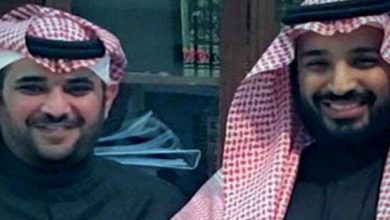Saudi authorities assault prominent human rights defenders in prison

The Gulf Center for Human Rights said that a prisoner assaulted Dr Mohammed Al-Qahtani in Al-Ha’ir Reformatory Prison in Riyadh. While he was not seriously harmed, the Gulf Centre for Human Rights (GCHR) calls on the Saudi authorities to make sure prisoners are not at risk of being injured. This attack comes as part of a series of continuous targeting of human rights defenders who are detained in the Kingdom’s prisons.
On 26 May 2022, at night, Dr Al-Qahtani was assaulted by a prisoner who was a member of a large group of mentally ill patients crowded in ward 8A.
In addition to Dr Al-Qahtani, there are several human rights defenders in ward 8A, including Issa Al-Nukhaifi and Fawzan Al-Harbi, as well as writer Mohammed Al-Hudayf. There are also dozens of Internet activists in this ward who are detained because of what they posted on social media.
Human rights defender Maha Al-Qahtani, the wife of Dr. Al-Qahtani, tweeted: “I condemn what happened to my husband, Dr. Mohammed Al-Qahtani, and I hold the prison administration responsible for that, and for the harm that may happen to him as a result of the repetition of these violations. It is no secret that the presence of psychopaths with prisoners of conscience are considered a danger, a clear violation of the rights of detainees and a violation of international laws and agreements. They must resolve the issue and hold those who deliberately harm them in multiple ways accountable.”
Since 2017, the Saudi authorities have systematically and deliberately placed sick prisoners in ward 8A, in order to endanger the lives of human rights defenders and other activists. Because of this ractice, many serious incidents occurred, including a fire that was ignited in the ward by one of these patients in 2021.Although it was extinguished, the lives of all inmates were endangered, due to the lack of emergency exits in all prison wards, which violates the safety standards followed around the world.
Despite the many requests made by the families of detainees in ward 8A that sick prisoners be transferred to somewhere they can receive adequate medical treatment, the authorities did little about it.
Dr. Mohammed Fahad Al-Qahtani is a founding member of the Association for Civil and Political Rights in Saudi Arabia (ACPRA). On 09 March 2013, the Riyadh Criminal Court sentenced him to 10 years in prison on 12 charges related to his human rights activities. It is hoped that he will be released next November after his sentence is complete.
On 11 April 2021, GCHR documented that Dr. Al-Qahtani contracted the COVID-19 virus, from which he later recovered. He also launched two hunger strikes in December 2020 and March 2021, lasting for several days, to protest the mistreatment of inmates.
GCHR condemns the Saudi authorities’ blatant disregard for most of the rules contained in the United Nations Standard Minimum Rules for the Treatment of Prisoners (the Nelson Mandela Rules), especially Paragraph (1) of Rule (5) which states, “The prison regime should seek to minimise any differences between prison life and life at liberty that tend to lessen the responsibility of the prisoners or the respect due to their dignity as human beings.” The Saudi authorities also fail to comply with paragraph (1) of Rule 27, which states, “Prisoners who require specialised treatment or surgery shall be transferred to specialised institutions or to civil hospitals.”
GCHR urges the authorities in the Kingdom of Saudi Arabia to:
- Immediately and unconditionally drop all charges against Dr. Mohammed Al-Qahtani, Fawzan Al-Harbi, Issa Al-Nukhaifi and Muhammad Al-Hadeef, and release them, along with all other unjustly imprisoned human rights defenders and internet activists;
- Isolate sick prisoners with psychological and mental illnesses who pose a danger to other prisoners, and ensure that they are transferred to specialised hospitals for adequate treatment;
- Immediately stop the ill-treatment of prisoners of conscience and all prisoners, including withholding reading material from them and preventing regular family contacts, which violates the United Nations Standard Minimum Rules for the Treatment of Prisoners; and
- Ensure that all human rights defenders in Saudi Arabia are able in all circumstances to carry out their legitimate human rights activities without fear of reprisals and without any restrictions, including judicial harassment.





